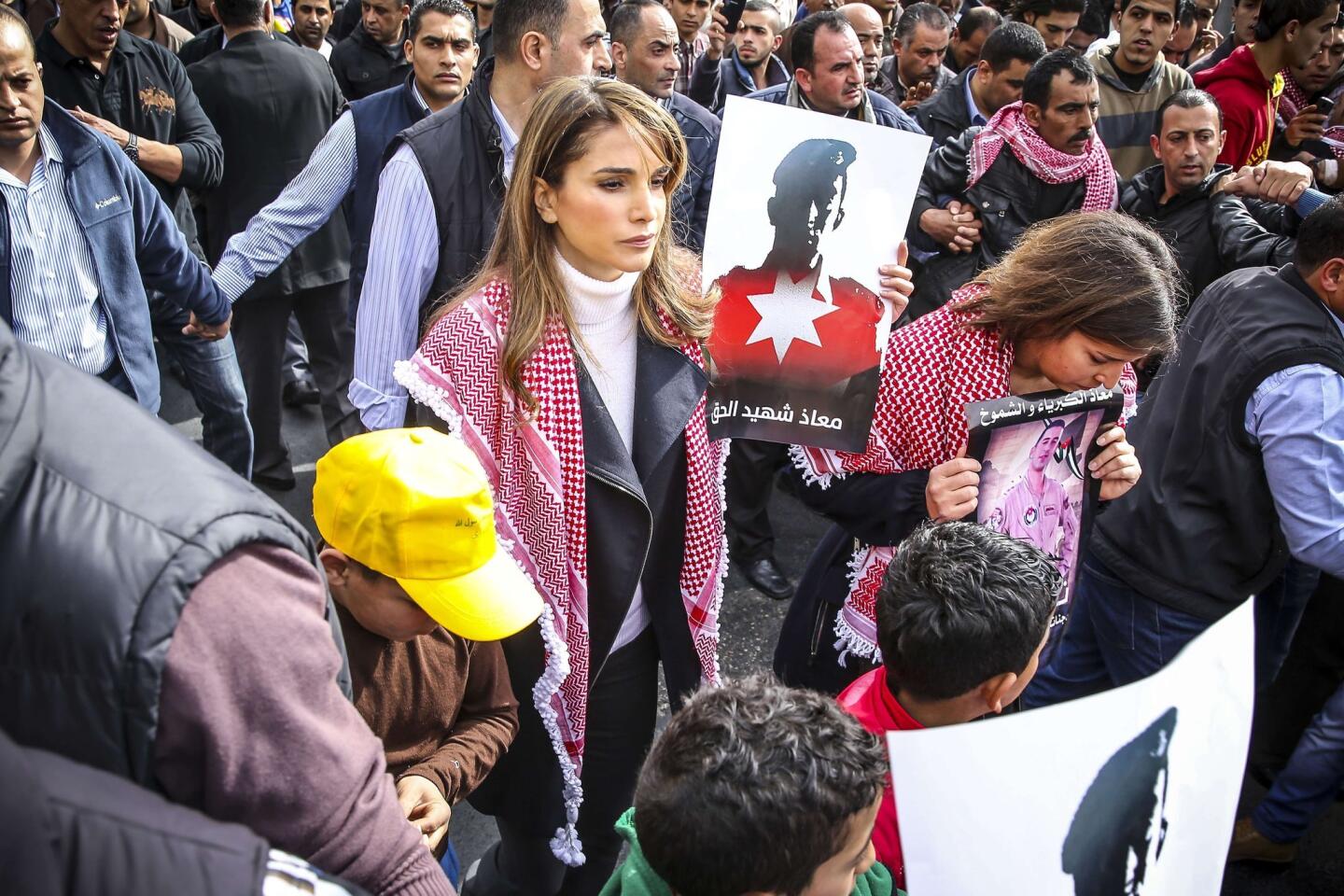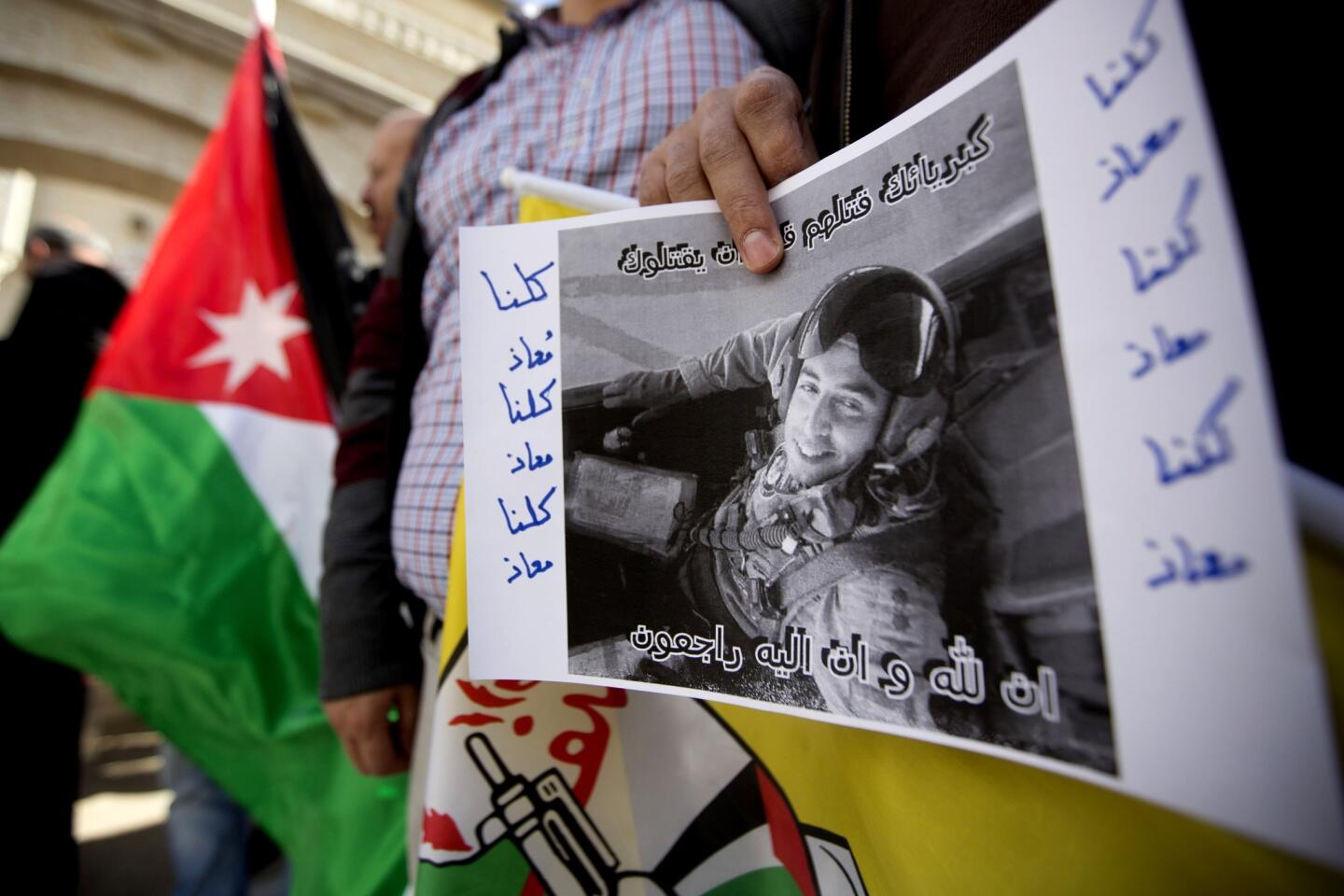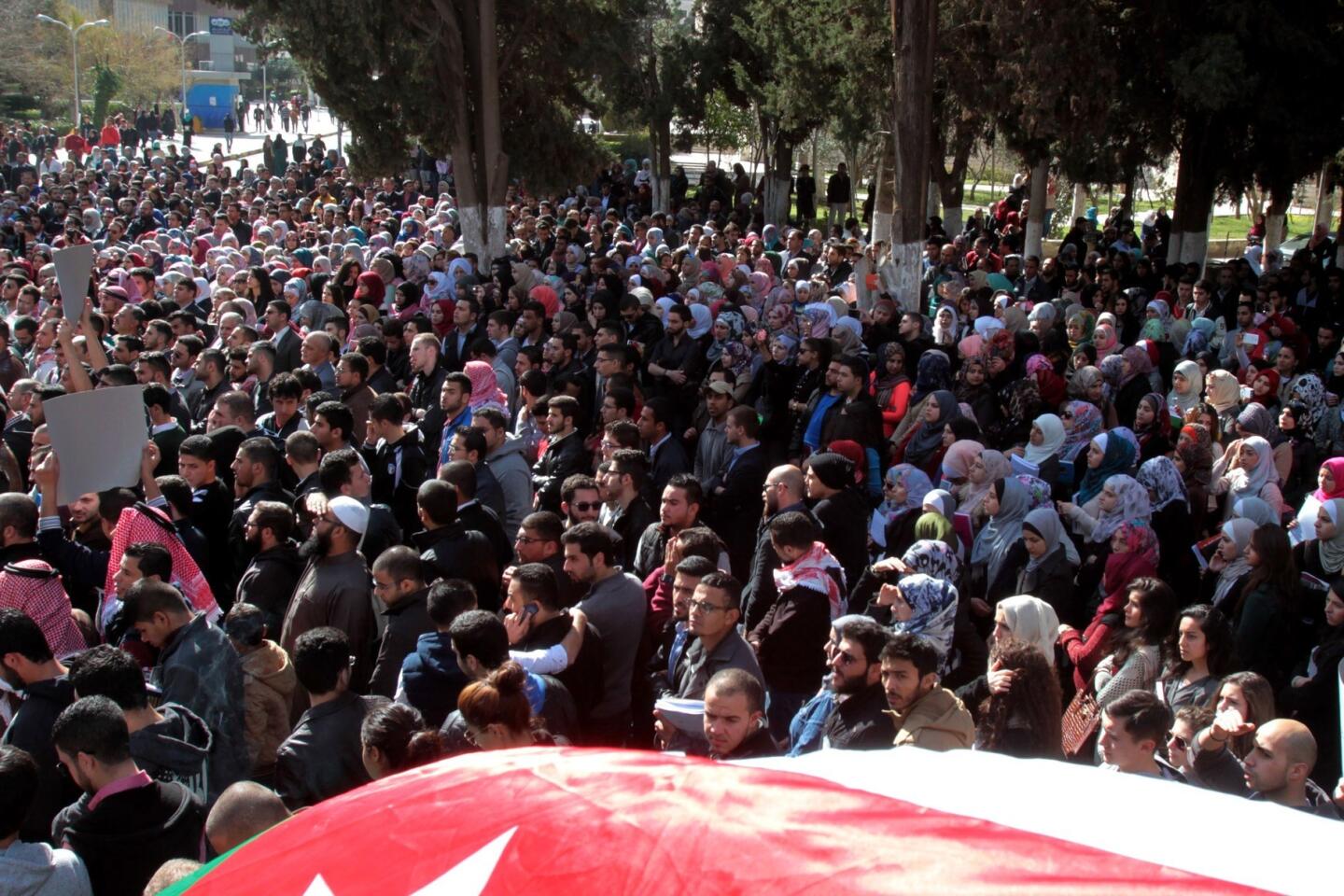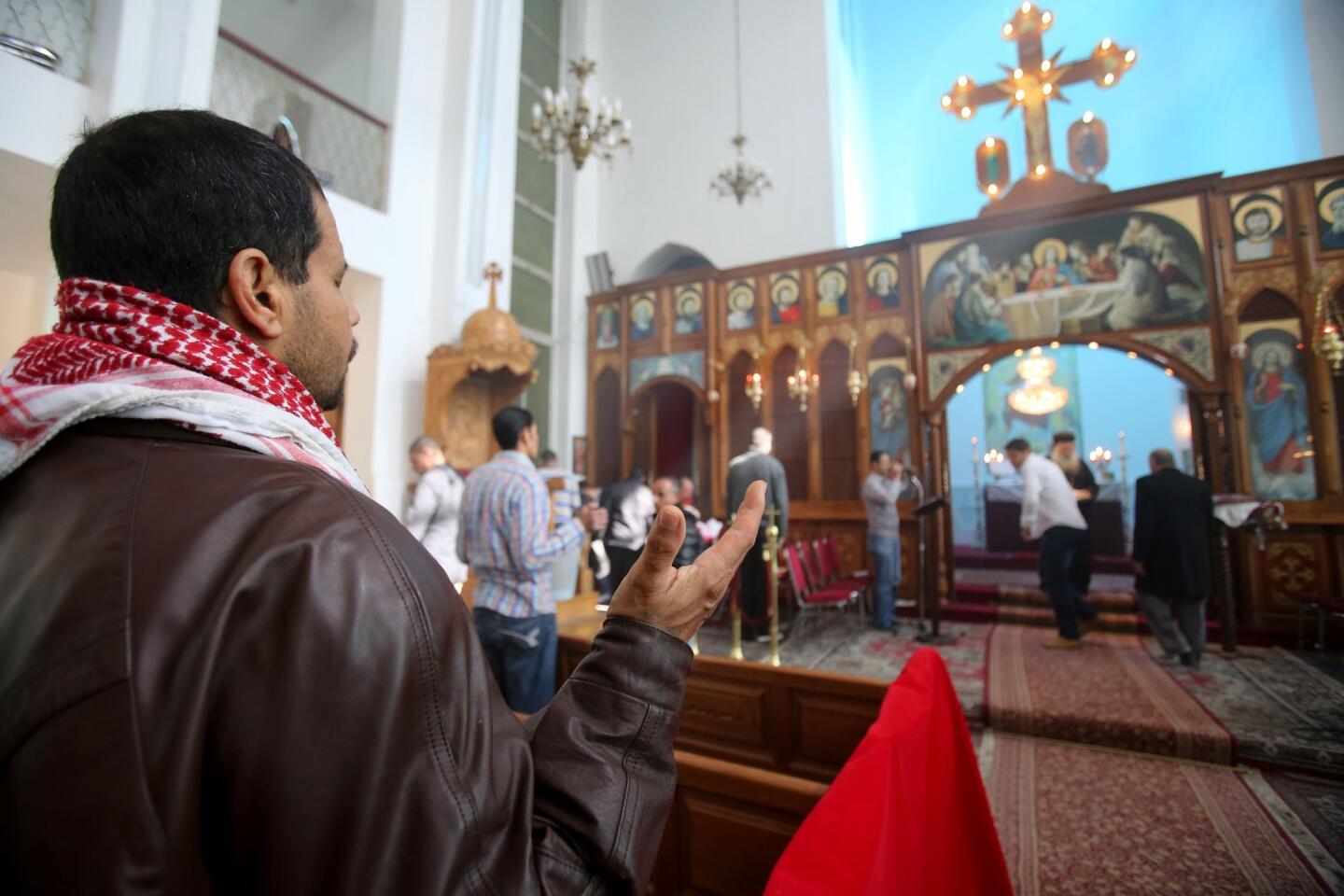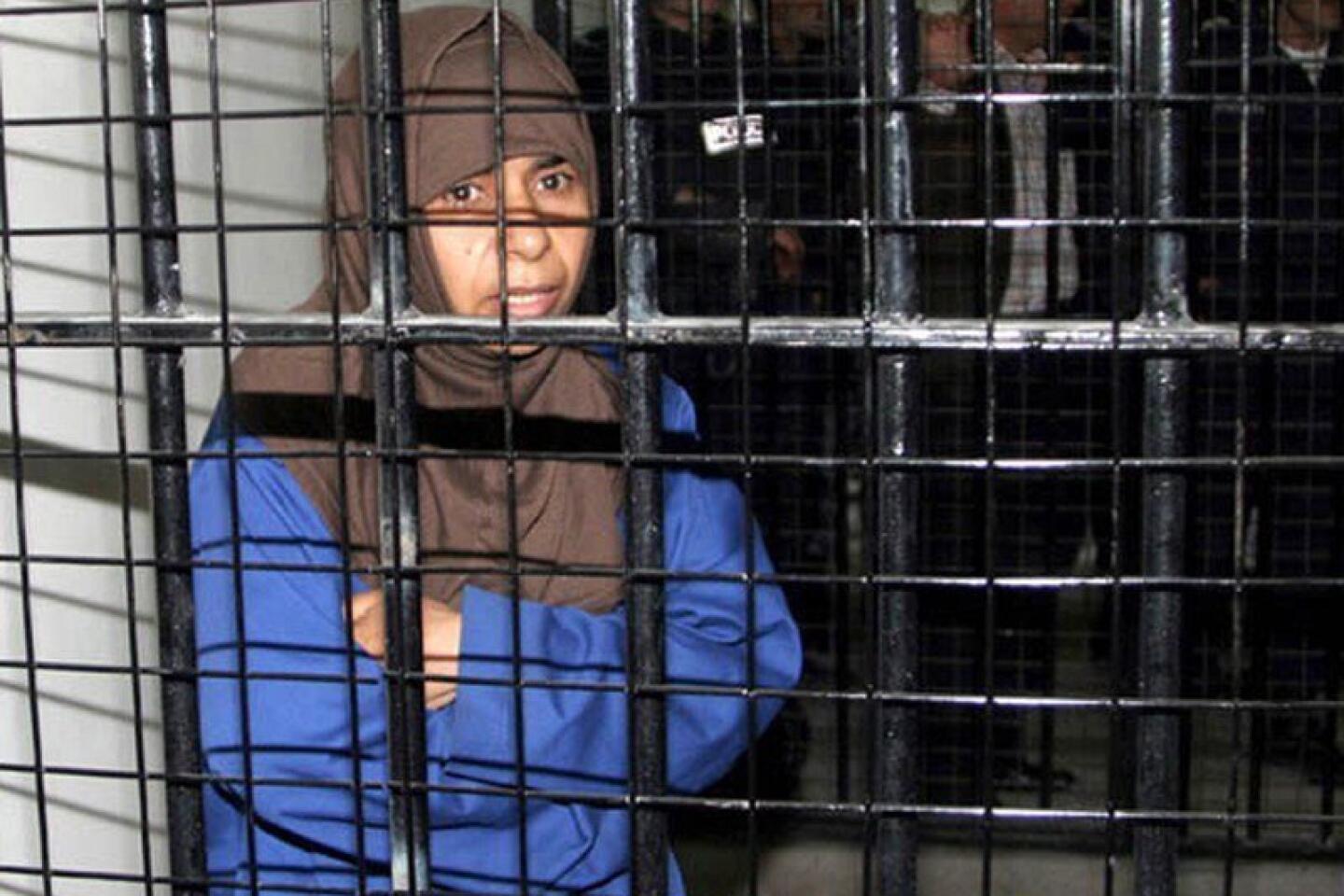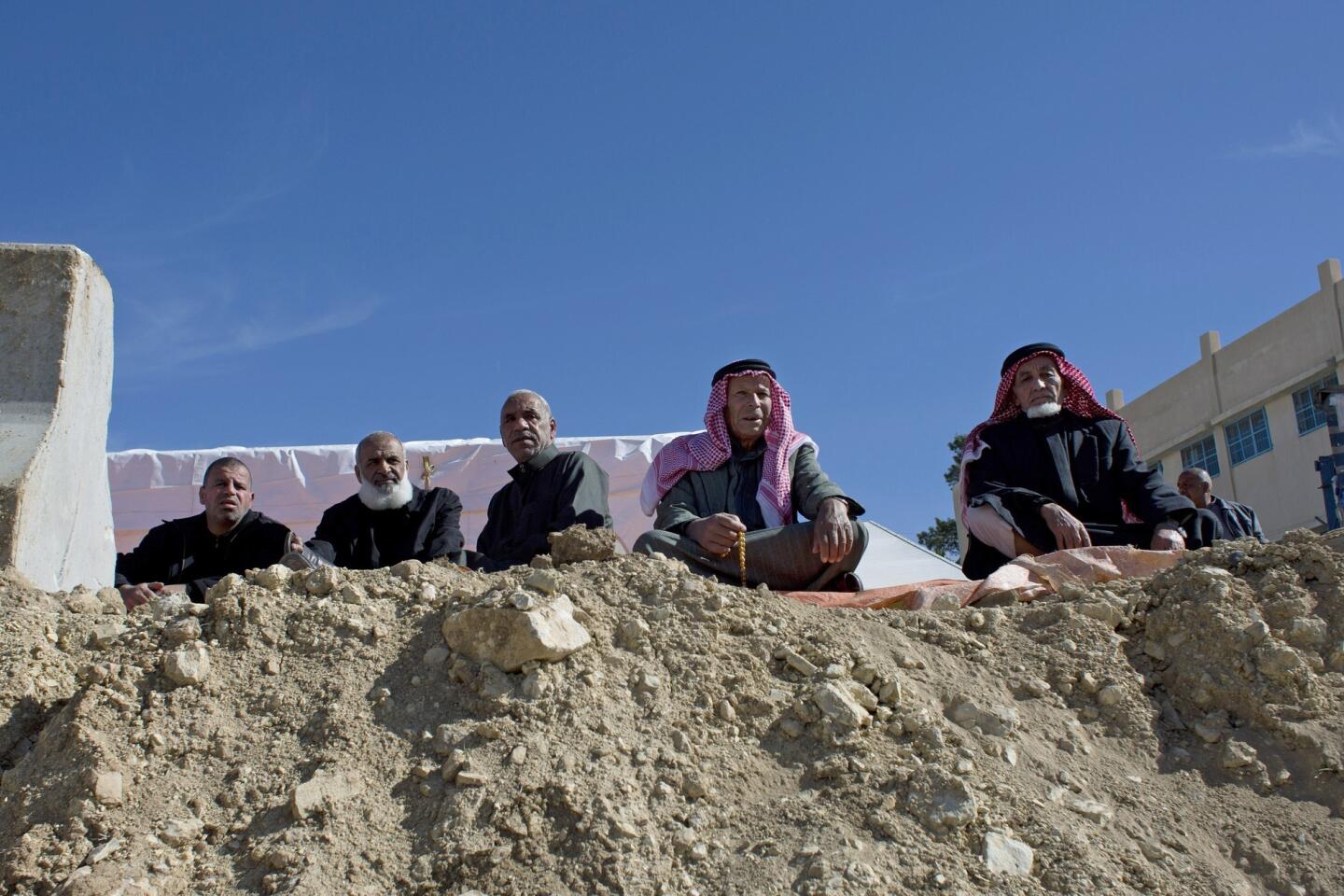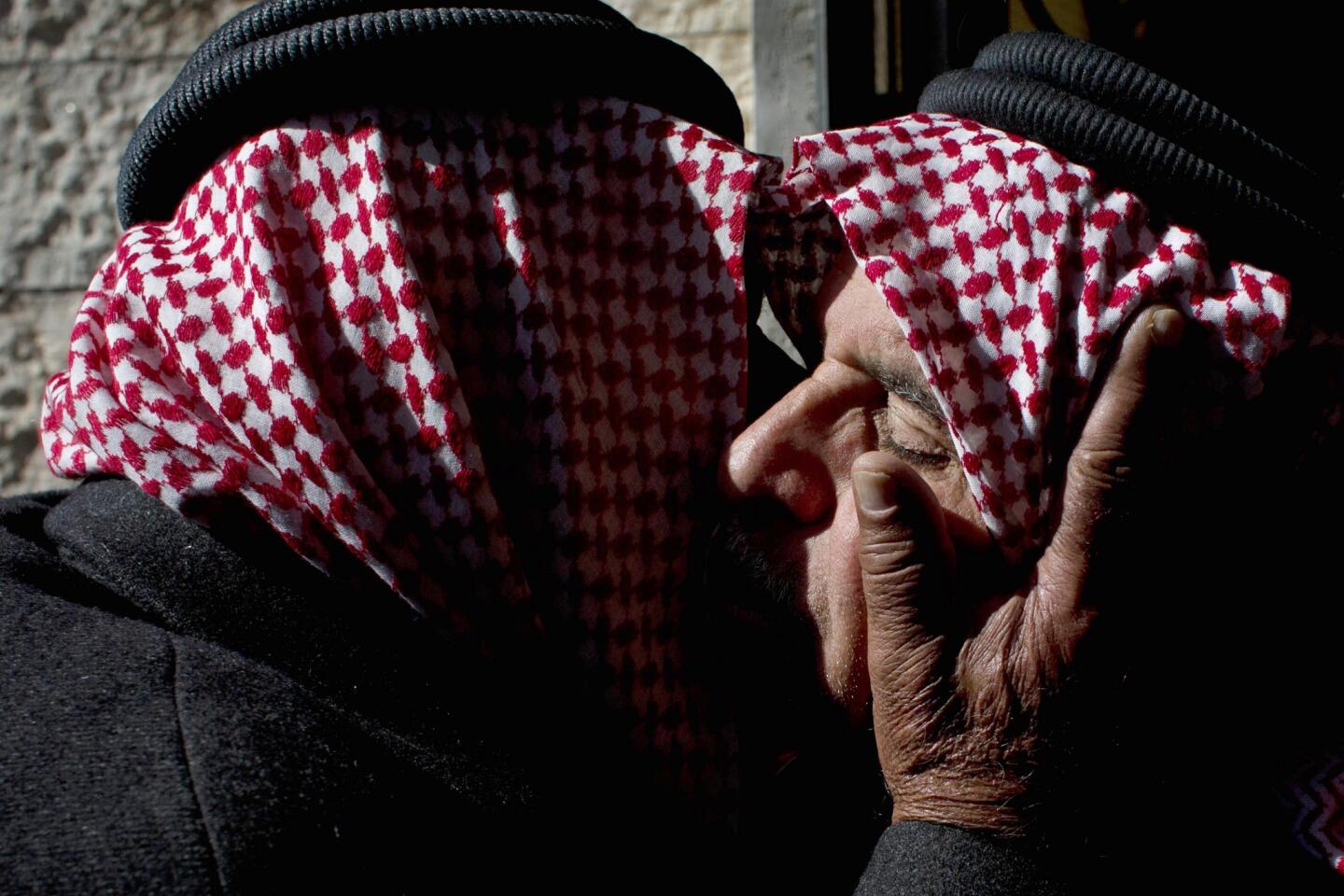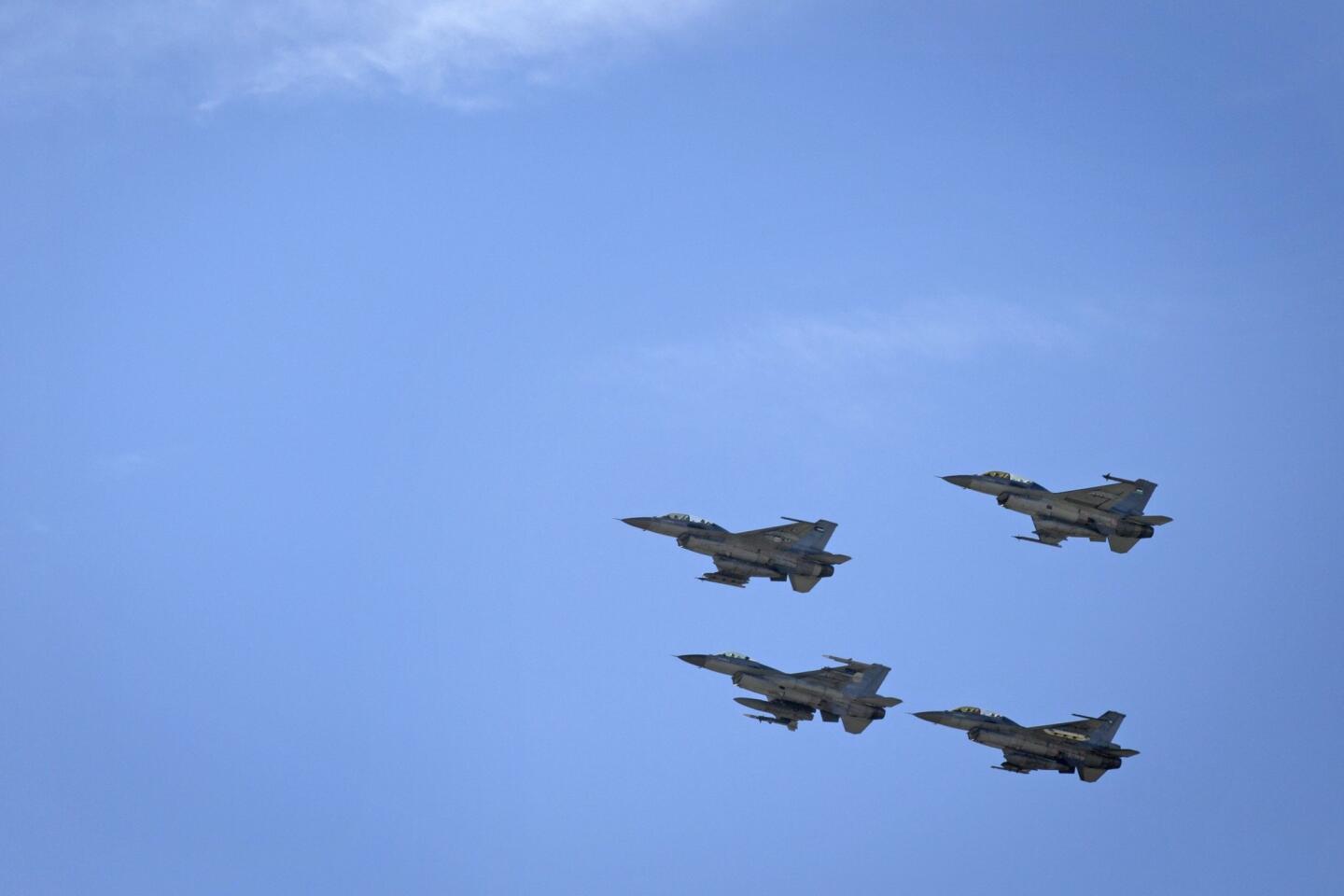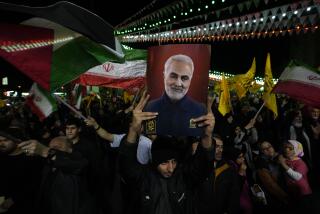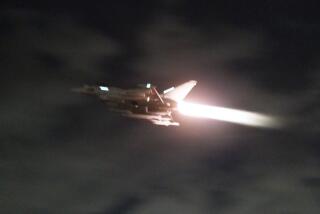Islamic State’s burning of Jordanian pilot draws Arab condemnation
King Abdullah II of Jordan vowed Wednesday that his country would exact “relentless” retribution against Islamic State militants, as many in the Arab world united in revulsion after learning that a captive pilot had been burned alive in a metal cage.
“This terrorist organization does not just fight us, but it also fights good Islam and its values,” the monarch said in a nationally televised speech.
The killing of Lt. Moaz Kasasbeh, 26, whose immolation last month drew global condemnation after the video was posted on the Internet this week, has sparked outrage and demands for revenge in Jordan, a key U.S. ally in counter-terrorism efforts.
The kingdom has vowed an “earth-shaking” response to the pilot’s killing. But officials have not detailed new steps the nation is prepared to take, beyond the execution early Wednesday of a pair of Al Qaeda militants who had long been on death row.
Islamic State militants captured Kasasbeh in December when his F-16 fighter jet crashed in northern Syria while he was on a mission as part of the U.S.-led bombing campaign against Islamic State.
His death could signal a complicated new juncture in the U.S.-led military offensive against Islamic State. The White House views the participation of Arab allies as crucial to maintaining the mission’s credibility.
At least five Arab countries — Jordan, the United Arab Emirates, Bahrain, Qatar and Saudi Arabia — have taken publicly acknowledged roles in the air campaign targeting militants in Syria. But the Emirates, which had originally touted its involvement, suspended its participation after the Jordanian pilot’s capture, a U.S. official confirmed Wednesday, apparently because of concern about rescue operations for downed air crews.
There was no public indication Wednesday that any other Arab participants had pulled out. Jordanian officials indicated that the nation would stand firm.
“We will lie in wait for the gang of criminals and strike them in the heart of their homeland,” and the pilot’s spilled blood “will not go to waste,” Abdullah said.
On Wednesday, Jordan appeared to seethe with rage over the shocking death of a young pilot who had become something of a national hero. Until the release of the Islamic State video, there had been hope that he would be released, perhaps in a prisoner exchange.
“We must burn them,” said Dr. Hazem Qaraalah, a resident of the southern region of Karak, home of the pilot and his influential tribe. “In the name of all people ... we must burn them.”
The militants seek to sow divisions in Jordanian society, where many had misgivings about Amman’s role in the U.S.-led offensive. Jordan is home to many sympathizers of Al Qaeda and Islamic State.
In the days before the video appeared, even some of Kasasbeh’s relatives commented publicly that this was not Jordan’s battle. But the confirmation of his death appears to have intensified national resolve and loathing of Islamic State.
Throughout the capital, Jordanian flags fluttered from electricity poles and buildings. Nationalist songs blared from radios.
Crowds waving national flags took to the streets and converged on Queen Alia International Airport, where the king arrived in the early afternoon after cutting short a visit to the United States.
“Now the Jordanian masses are angry and hitting out at [Islamic State] and not the Jordanian government,” Khaled Zubeidi, the editor in chief of Jordan’s Al Dustour newspaper, said in a TV interview. “There is a strong public determination … to fight the Islamic State.”
Among those who had expressed doubt about the mission was the pilot’s father, Safi Kasasbeh. On Wednesday, however, he called for the destruction of Islamic State, which controls large stretches of territory in neighboring Iraq and Syria.
“I demand that Islamic State be wiped out, this is a murderous and despicable group,” the father, dressed in full tribal garb, told journalists as he received condolences in the southern city of Karak. “I demand that none of the criminals be spared.”
Islamic State, meanwhile, appeared to double down on its tactics, implicitly defending the immolation as a fitting punishment for a pilot who participated in a bombing campaign that has taken civilian lives.
On Wednesday, the group released new images on the Internet highlighting a public showing of the execution video, complete with positive reviews from a number of viewers in militant-controlled territory.
“I would like to burn him like he burned the Muslims,” says a boy interviewed by Islamic State, according to a transcript released by SITE Intelligence Group, which monitors militant Web traffic. “I wish to capture pilots and burn them.”
In several Arab countries, prominent clerics condemned the execution on religious grounds.
In Egypt, Ahmed Tayeb, who heads Sunni Islam’s highest seat of learning, Al Azhar, called Islamic State “diabolical” and said the Koran mandated a painful death for the executioners, such as crucifixion or having their arms and legs amputated.
Early Wednesday, Jordan announced that it had hanged a pair of condemned militants linked to Al Qaeda in Iraq, a predecessor of Islamic State. One of those executed, Sajida Rishawi, was a failed suicide bomber in 2005 attacks on hotels in Jordan that left more than 50 dead. The Jordanian government had offered to release her in exchange for the pilot, but had demanded proof that the pilot was alive.
Bulos is a special correspondent. Staff writer McDonnell reported from Beirut. Times staff writers Laura King in Cairo and W.J. Hennigan in Washington contributed to this report.
Follow @mdcneville for news from Iraq and Syria
More to Read
Start your day right
Sign up for Essential California for news, features and recommendations from the L.A. Times and beyond in your inbox six days a week.
You may occasionally receive promotional content from the Los Angeles Times.
